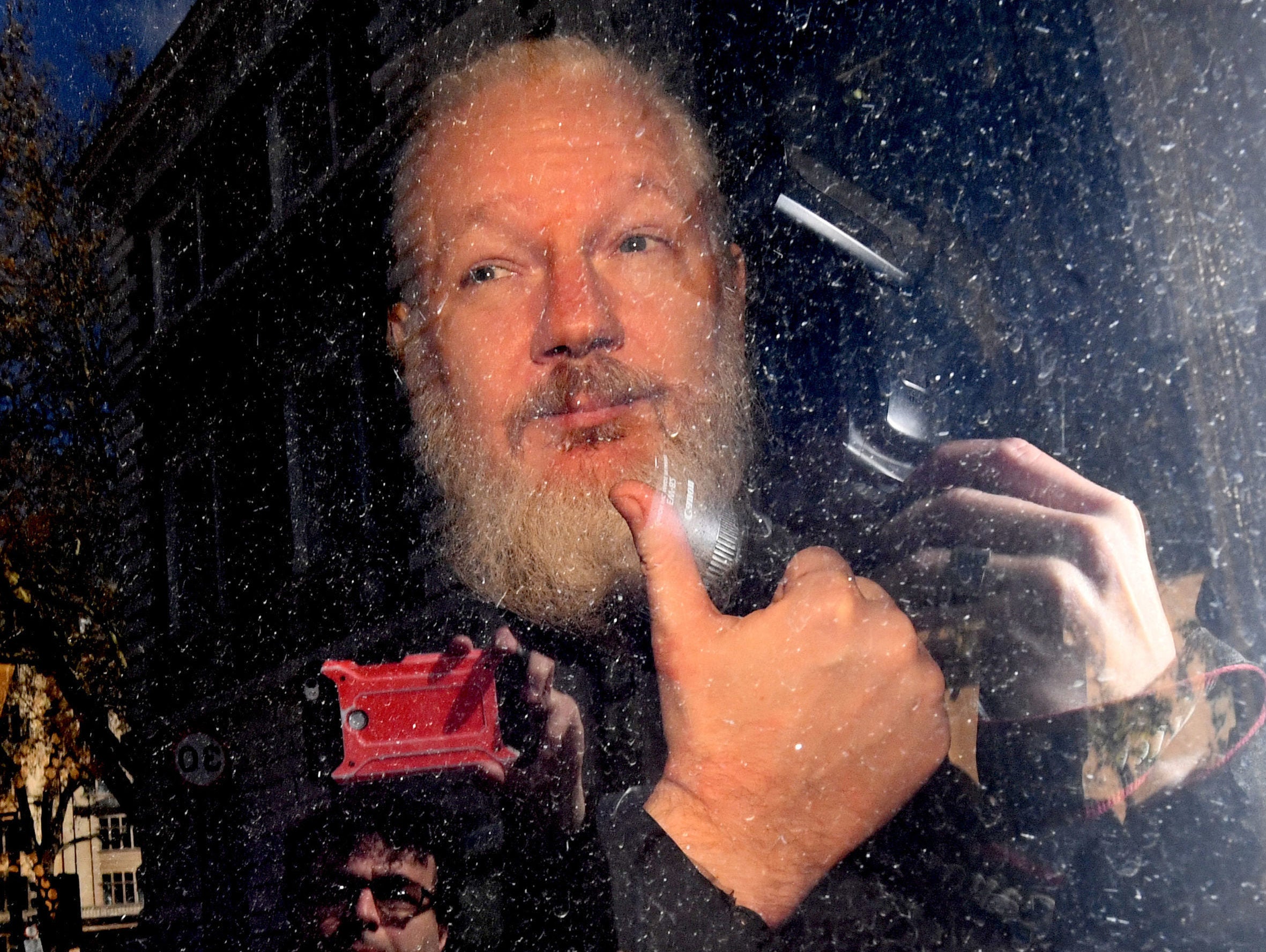
An Italian investigative journalist has lost a tribunal battle to access files relating to the extradition of Wikileaks founder Julian Assange but vows she “won’t give up”.
Stefania Maurizi made a Freedom of Information request for all correspondence between the UK Crown Prosecution Service and authorities in the US and Sweden relating to the proposed extradition of Assange.
But an Upper Tribunal judge last week refused her latest appeal.
Maurizi, who writes for Italian newspaper La Repubblica, said her lawyers now have one month to decide whether there are grounds for appealing the case on a point of law.
She told Press Gazette: “We absolutely need transparency and oversight on the Assange and Wikileaks case and only the press can bring it by accessing the full documentation on this case. I won’t give up.”
In September 2015, Maurizi used an FOI to ask the CPS for its full correspondence with the Swedish Prosecution Authority concerning its criminal investigation into Assange over a 2012 rape allegation.
The CPS refused to hand over the correspondence, saying it was exempt information under three sections of the FOI Act relating to international relations, criminal proceedings, and personal data.
Maurizi also asked for any correspondence about Assange between the CPS and Ecuador, which granted the whistleblower asylum in its London embassy for almost seven years, as well as the CPS and the US Department of Justice and the US State Department.
The CPS refused to either confirm or deny whether it had any such correspondence (known as an NCND response), relying on the part of the FOI Act exempting confidential information obtained from another state.
Maurizi appealed against all of these refusals to the Information Commissioner, who sided with the CPS. She then took the battle to the First-Tier Tribunal in 2017, and now the Upper Tribunal, which heard the case in July.
The journalist had argued that the FTT had failed to take into account changes in the “facts, matters and circumstances” around the case since the CPS’ original refusal in 2015.
In 2017, Sweden dropped its investigation into a rape allegation against Assange after finding that “all possibilities to conduct the investigation are exhausted”, revoking a European Arrest Warrant.
Also in 2017, the SPA gave the CPS consent to disclose much of the correspondence which had previously been confidential, resulting in additional disclosures made to Maurizi.
The journalist therefore claimed the FTT’s decision should have taken the updated public interest arguments into account, an approach “would make the FOIA regime much more user-friendly for journalists and other requesters”.
But Judge Edward Mitchell disagreed, ruling that the FTT had “rightly conducted a public interest balancing exercise according to circumstances as they stood in late 2015”.
The judge added: “I… had difficulty understanding why, as a matter of legal principle, an executive body would be required to make decisions according to current circumstances.
“I accept this is very often sensible but there is not, to my knowledge, an Act of Parliament that mandates it.”
Judge Mitchell said he was bound by a previous Upper Tribunal decision on a similar point because it was made by three judges instead of one, but that he “likely” would have ruled against Maurizi regardless.
The judge also ruled that the FTT had not erred in law in dismissing Maurizi’s appeal against the Information Commissioner regarding either the Ecuadorean or US state authorities.
He was “not persuaded” that the FTT had “left out of account any relevant considerations in carrying out the NCND public interest balancing exercising”.
Assange took refuge in the Ecuadorian Embassy in London to avoid extradition to Sweden in 2012 but was forcibly removed by police in April and later charged and jailed for skipping bail.
He has been ordered to face a full extradition hearing next year as he fights against being sent to the US to face 18 charges that include allegations of conspiring to hack into a classified Pentagon computer.
There have been concerns for Assange’s health since he was moved to Belmarsh Prison, where he was put on a medical ward in May.
After receiving the judgment late last week, Maurizi told Press Gazette: “The UK authorities bear huge responsibilities for his serious conditions: clearly, they want to break him down.
“And the fact that the Swedish authorities, the UK authorities, the US authorities and the Australian ones keep denying me access to the full documentation is completely suspicious.”
Estelle Dehon, representing Maurizi, said: “The decision is disappointing since it means that the FOIA system remains less user-friendly for requesters, and particularly for journalists, because of how it approaches arguments about the public interest.”
If Maurizi decides to appeal on a question of law, she will have to apply for permission from Judge Mitchell to proceed to the Court of Appeal.
Picture: Victoria Jones/PA Wire
Email pged@pressgazette.co.uk to point out mistakes, provide story tips or send in a letter for publication on our "Letters Page" blog
